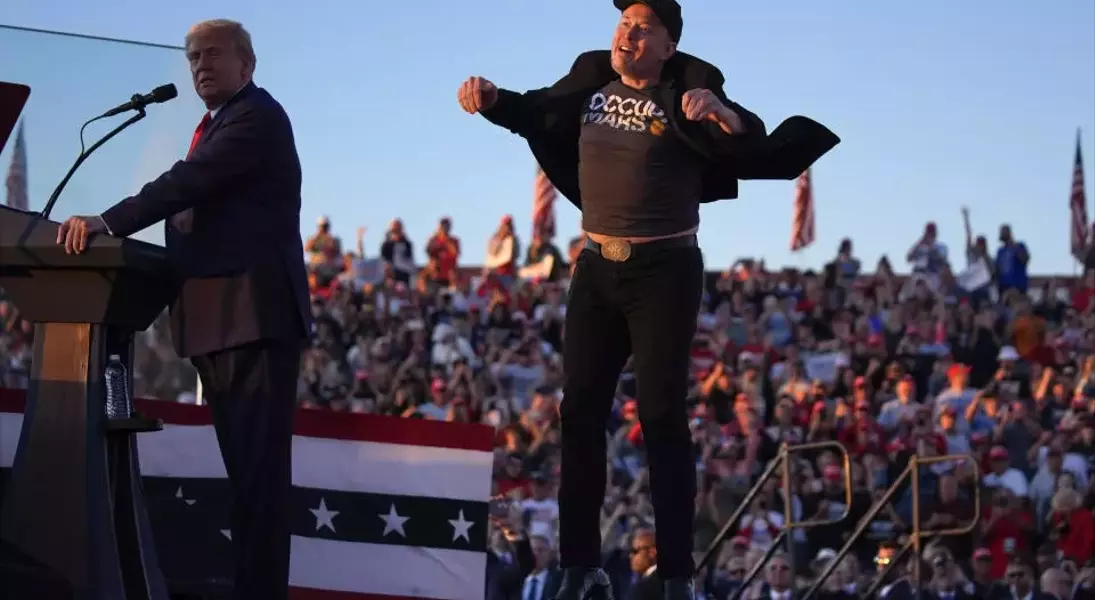
Musk's Risky Gamble: Courting Controversy for Political Gain
Musk's Divisive Foray into Politics
Elon Musk, the enigmatic billionaire behind Tesla, SpaceX, and X (formerly Twitter), has long been a polarizing figure. His outspoken views on a range of issues, from government overreach to social inclusion policies, have earned him both ardent supporters and fierce critics. Now, Musk's decision to actively support Trump's presidential campaign has further cemented his reputation as a divisive political player.Musk's MAGA activism has made him a lightning rod for controversy, with many of his former supporters, particularly among liberal climate warriors, feeling betrayed by his shift towards the Republican party. As a champion of electric vehicles, Musk was once hailed as a hero by those who saw EVs as a vital tool in the fight against climate change. However, his newfound alliance with Trump has eroded that goodwill, with many questioning his motivations and the potential impact of his political involvement.
Surveys conducted by Yahoo Finance and other reputable organizations have revealed that Musk's endorsement of Trump is more likely to drive voters away from the former president than to attract them. This is particularly true among independent and undecided voters, who are seen as crucial in determining the outcome of the 2024 election.
The Perception of Self-Interest
Musk's decision to involve himself in the political arena has also raised concerns about his potential self-interest. Many respondents in the Yahoo Finance survey believe that Musk is seeking to exploit his role as a Trump adviser to benefit his own companies, which face a wide variety of federal regulations.This perception of self-interest has further eroded Musk's credibility among the public, with many questioning whether his support for Trump is driven by a desire to gain an unfair advantage for his businesses rather than a genuine belief in the former president's policies. This sentiment is particularly prevalent among Tesla shareholders, who are generally more optimistic about Musk's ability to improve the government, but still harbor concerns about his motivations.
Musk's ambitious plan to lead a "government efficiency commission" if Trump wins the presidency has only added to the perception of self-interest. Many are skeptical of Musk's ability to effectively reform the government, with some fearing that he may use the position to further his own agenda rather than serve the public interest.
The Backlash and Musk's Divisive Legacy
Musk's involvement in the 2024 presidential race has undoubtedly left a lasting impact on his public image. Once hailed as a visionary entrepreneur, Musk is now increasingly viewed as a political figure, with his approval ratings reflecting the deep partisan divide in the country.While Musk maintains strong support among Republicans, his approval ratings among Democrats have plummeted, with only 6% of Democrats viewing him positively. This stark contrast highlights the extent to which Musk's political activism has alienated a significant portion of the electorate, potentially undermining his ability to effectively lead his companies and drive innovation in the future.
As the 2024 election approaches, Musk's controversial backing of Trump will undoubtedly continue to be a topic of intense scrutiny and debate. The outcome of this political gamble could have far-reaching consequences, not only for Trump's campaign but also for Musk's own legacy and the future of his business ventures.
